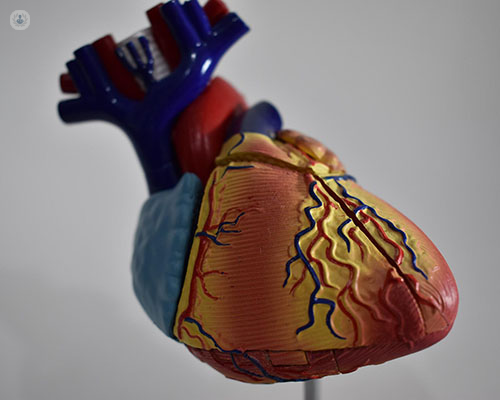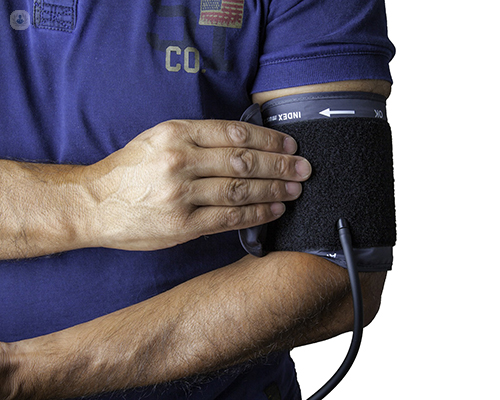Dry January: drinking alcohol and the links between heart disease, alcohol consumption and hypertension
Autore:Every January, many people across the UK decide to take part in ‘Dry January’, meaning they abstain from alcohol for the month. This can have numerous benefits, including improved cardiovascular health. Dr Jonathan Hasleton, a consultant cardiologist at the renowned Venturi Cardiology clinic, offers his expert insight into the effects of alcohol on the heart.

Can drinking alcohol increase the risk of heart disease?
Moderate alcohol consumption has been associated with a lower risk of heart disease in some studies. However, heavy alcohol consumption has been linked to an increased risk of heart disease.
Excessive drinking can also cause:
- Cardiomyopathy – a condition in which the heart muscle is damaged and cannot work as efficiently as it used to.
- Arrhythmia, or abnormal heart rhythms
How can drinking alcohol contribute to heart disease?
There are several ways in which drinking alcohol may contribute to heart disease:
- Increased blood pressure: Alcohol consumption can cause an increase in blood pressure, which is a major risk factor for heart disease.
- Increased levels of LDL cholesterol: Heavy alcohol consumption has been linked to an increase in LDL cholesterol, the "bad" cholesterol that can clog arteries and increase the risk of heart disease.
- Damage to the heart muscle: Heavy alcohol consumption can lead to a condition called cardiomyopathy, which is a weakening of the heart muscle that can increase the risk of heart failure.
- Stroke: Heavy alcohol consumption has been linked to an increased risk of stroke, which is a leading cause of heart disease.
- Obesity: Alcohol contains empty calories that can contribute to weight gain and obesity, which is a major risk factor for heart disease.
Venturi Cardiology, one of the UK’s leading cardiology clinics offers a wide range of packages that can assess the health of your heart. Many of these packages include tests that screen for heart disease. A list of the packages can be found here.
How much alcohol is considered to be moderate consumption?
Moderate alcohol consumption is generally defined as up to one drink per day for women and up to two drinks per day for men. A standard drink is defined as 12 ounces of beer, 5 ounces of wine, or 1.5 ounces of distilled spirits.
Can alcohol consumption cause hypertension (high blood pressure)?
Yes, alcohol consumption can cause an increase in blood pressure. Heavy alcohol consumption has been linked to a higher risk of developing hypertension.

Is it safe for individuals with hypertension to drink alcohol?
If you have hypertension, it is important to speak with your healthcare provider about whether it is safe for you to drink alcohol. They will consider your overall health and medical history, as well as your blood pressure levels, when making this recommendation.
Can cutting back on alcohol consumption lower blood pressure?
Reducing alcohol consumption can help to lower blood pressure in some individuals. If you have hypertension and are considering cutting back on your alcohol intake, it is important to speak with your healthcare provider to determine the best approach for you. They can help you to develop a plan to safely reduce your alcohol intake and manage your blood pressure.
How can I test for hypertension?
In general, there are several ways we can test for hypertension, or high blood pressure:
- Blood pressure measurement: The most common way to test for hypertension is through a blood pressure measurement. This is typically done using a blood pressure cuff and a device called a sphygmomanometer. The cuff is wrapped around your upper arm, and the sphygmomanometer measures the pressure in your arteries as your heart pumps blood through your body.
- Ambulatory blood pressure monitoring: This test involves using a portable device to measure your blood pressure at regular intervals throughout the day. This can help to provide a more accurate picture of your blood pressure patterns.
- Home blood pressure monitoring: You can also test for hypertension by using a home blood pressure monitor. These devices are available for purchase at many pharmacies and can be used to measure your blood pressure at home.

It is important to note that a single blood pressure measurement is not always sufficient to diagnose hypertension. Your healthcare provider will typically take multiple measurements at different times to confirm a diagnosis of hypertension.
Venturi Cardiology offers several different packages to assess and monitor heart health. One such package is the Hypertension package:
Hypertension
Price: £900
Venturi’s hypertension package includes consultation, echo, ECG, and a blood pressure monitor to take away and keep. This package is perfect for anyone worried about the negative effects alcohol could be having on their heart health, and will allow them to continuously monitor their heart for hypertension.
What are the benefits of dry January and its effects on the heart?
Dry January refers to a trend in which people abstain from alcohol for the month of January. There are several potential benefits to participating in Dry January, including:
- Improved cardiovascular health: Alcohol consumption has been linked to an increased risk of heart disease, and abstaining from alcohol for a period of time can help to improve cardiovascular health.
- Weight loss: Alcohol contains empty calories that can contribute to weight gain. Abstaining from alcohol can help with weight loss efforts.
- Improved sleep: Alcohol can interfere with sleep quality, and abstaining from alcohol can lead to improved sleep.
- Increased energy: Alcohol can cause fatigue, and abstaining from alcohol can lead to increased energy levels.
- Improved skin health: Alcohol can cause dehydration, which can lead to dry, dull skin. Abstaining from alcohol can help to improve skin health.

It is important to note that the benefits of Dry January will depend on the individual and their drinking habits. Some people may experience significant benefits from abstaining from alcohol for a month, while others may not notice as much of a difference.
Dr Jonathan Hasleton is a renowned consultant cardiologist based at Venturi Cardiology in Warrington. If you have any concerns about your heart, don’t hesitate to book a consultation with Dr Hasleton today via his Top Doctors profile.


